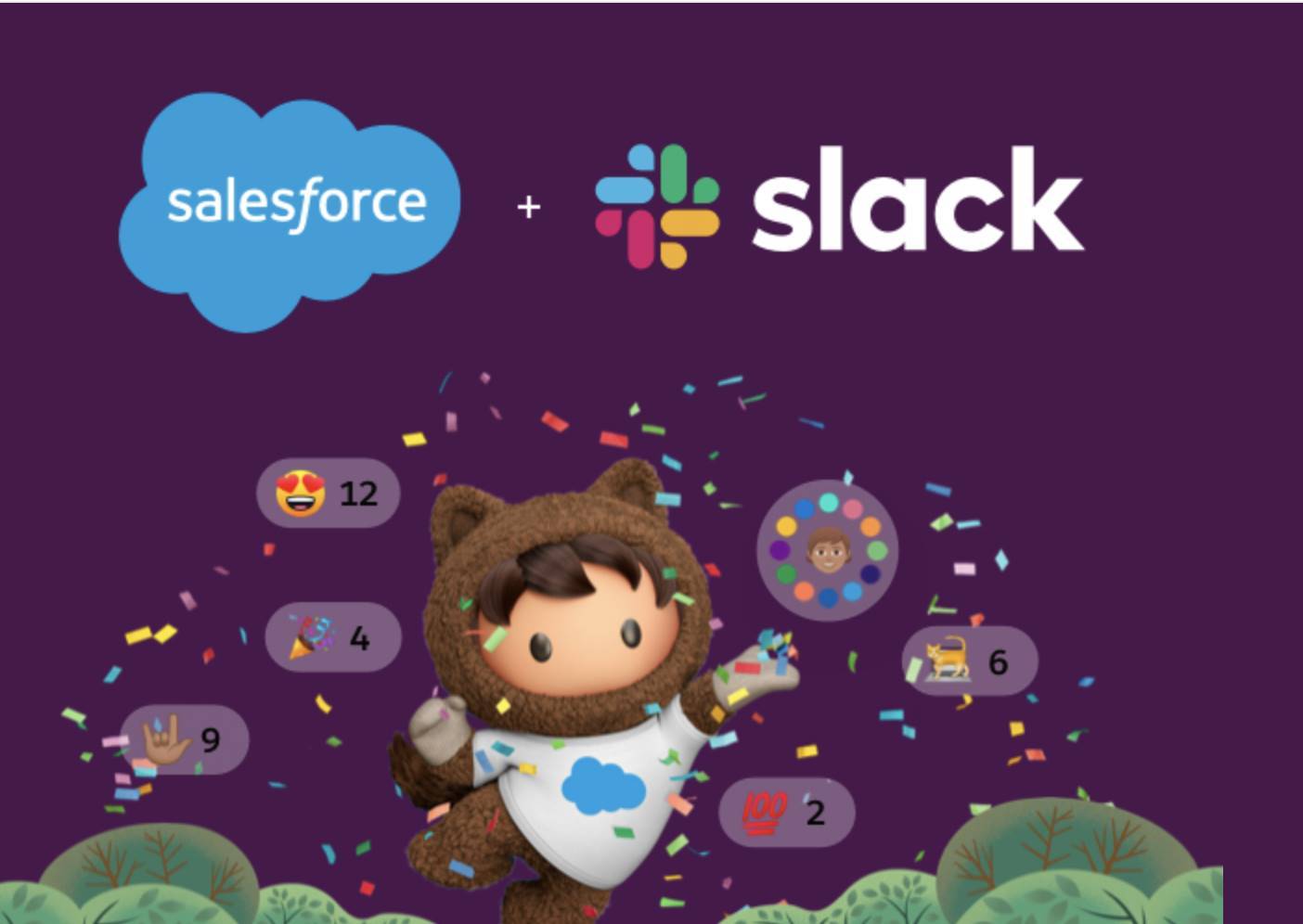
Salesforce, the CRM powerhouse that recently surpassed $20 billion in annual revenue, announced today it is wading deeper into enterprise social by acquiring Slack in a $27.7 billion megadeal. Rumors of a pending deal surfaced last week, causing Slack's stock price to spike.
Salesforce is making the biggest acquisition in its 21-year history, announcing on Tuesday that it’s buying chat software developer Slack for over $27 billion. That comes to about $45.86 a share. Salesforce to acquire Slack for nearly $28 billion. With the cash and stock deal, the messaging platform will be 'deeply integrated into every Salesforce Cloud,' the companies say. Salesforce held talks to buy Slack, in a deal that could be one of the biggest ever for the industry The deal would rival Facebook’s $19 billion purchase of WhatsApp in 2014. Salesforce is eyeing what could become its biggest-ever acquisition: Slack, the workplace instant messenger. The two tech companies recently held talks about a deal whose value would likely top $17. Salesforce has agreed to buy Slack for US$27.7 billion (A$37.5 billion), with CEO Marc Benioff declaring the combination of the two platforms “a match made in heaven”.
Salesforce co-founder and CEO Marc Benioff didn't mince words on his latest purchase. 'This is a match made in heaven. Together, Salesforce and Slack will shape the future of enterprise software and transform the way everyone works in the all-digital, work-from-anywhere world,' Benioff said in a statement.
Slack CEO Stewart Butterfield was no less effusive than his future boss. 'As software plays a more and more critical role in the performance of every organization, we share a vision of reduced complexity, increased power and flexibility, and ultimately a greater degree of alignment and organizational agility. Personally, I believe this is the most strategic combination in the history of software, and I can’t wait to get going,' Butterfield said in a statement.
Every worker at every company needs to communicate, something that Slack can ably empower. What's more, it also facilitates external communication with customers and partners, something that should be quite useful for a company like Salesforce and its family of offerings.
Ultimately, Slack was ripe for the taking. Entering 2020 it had lost around 40% of its value since it went public. Consider that after its most recent earnings report, the company lost 16% of its value, and before the Salesforce deal leaked, the company was worth only a few dollars per share more than its direct listing reference price. Toss in net losses of $147.6 million during the two quarters ending July 31, 2020, Slack's uninspiring public valuation and its winding path to profitability and it was a sitting target for a takeover like this one.
The new deal also puts Salesforce more on par -- and in competition -- with its arch rival and sometime friend Microsoft, whose Teams product has been directly challenging Slack in the market. Microsoft, which passed on buying Slack in the past for a fraction of what Salesforce is paying today, has made Teams a key priority in recent quarters, loathe to cede any portion of the enterprise software market to another company.
It's worth noting that Salesforce was interested in Twitter in 2016, the same year that Microsoft was reportedly interested in Slack, but eventually walked away from that deal when shareholders objected, not wanting to deal with the controversial side of the social platform.
What really has set Slack apart from the pack, at least initially, was its ability to integrate with other enterprise software. When you combined that with bots, those intelligent digital helpers, the company could potentially provide Salesforce customers with a central place to work without changing focus because everything they need to do can be done in Slack.
Today's deal comes after Salesforce’s purchase of Quip in 2016 for $750 million. Quip brought a way of socially sharing documents to the SaaS giant, and when paired with the Slack acquisition gives Salesforce a much more robust social story to tell than its internal option Chatter, an early attempt at enterprise social that never really caught on.
The company’s historic growth helped Slack raise over $1 billion while private, earning an impressive $7 billion valuation before going public last year. But while the Glitch-to-unicorn story appears simple, Slack has always faced entrenched competition from the likes of not only Microsoft, but also Cisco, Facebook, Google and even Asana and Monday.com.
Slack was founded in 2013, but its origins go back to an online multiplayer game company called Glitch that was founded in 2009. While the game was ultimately a failure, the startup developed an internal messaging system in the process of building that company that later evolved into Slack.
Slack Stock
For Slack, the path to the public markets was fraught with hype and outsized expectation. The company was famous, or as famous as an enterprise software company can be. At the time it felt like the its debut was the start of a long tenure as an indie company. Instead, that public life has been cut short by a huge check. Such is the dog-eat-dog world of tech.
